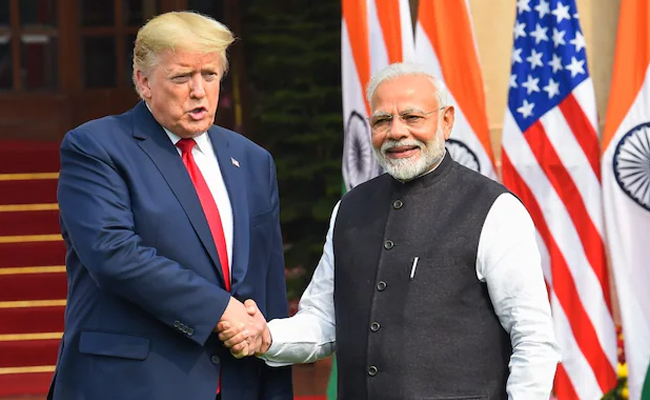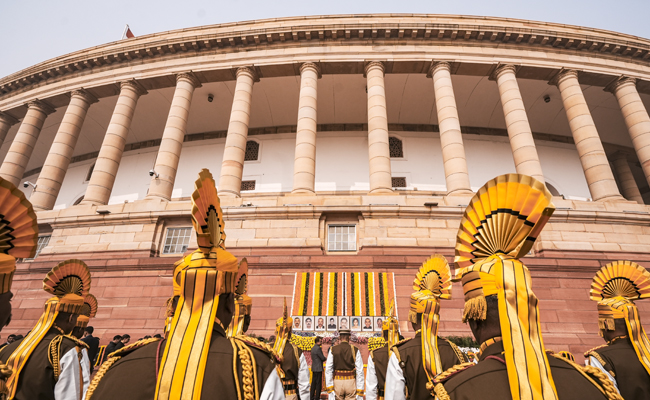Mumbai: A Mumbai Court recently acquitted a man who was pressed charges under insulting the modesty of a woman under Section 509 of the IPC for sending sexually explicit messages to a woman and observed that sending sexually explicit messages to a woman whom the accused was proposing to marry and who had not raised any objection to the same at the relevant point of time, will not amount to insulting her modesty.
Additional Sessions Judge DD Khoche noted that the woman had not objected to the messages from the accused at the relevant time.
“Sending such messages in such a premarital period, may delight the other one. It may give the happiness, may give the feeling that someone is closer to him or her, to understand his/her emotions,” the Court observed.
The accused Jignesh Chandulal was booked in 2010 under Sections 509 (outraging modesty), 376 (rape), and 420 (cheating) of the IPC.
The complainant woman had reportedly met Jignesh on a matrimonial site in 2007 and despite the opposition of Jignesh’s mother, the woman had started living with him and had tried to marry him. Eventually, there were quarrels between the accused and the complainant and the marriage between the two could not take place.
Feeling deceived, the woman lodged a complaint against the accused. Initially, he was charged for insulting modesty of woman under Section 509 IPC and cheating under Section 420 IPC besides provisions of Dowry Prohibition Act.
Subsequently, the charge of rape was added on the ground that the man had sexual relationship with the woman by giving false assurance of marriage.
The Court said if the woman did not like the accused sending her sexually explicit messages, she should have conveyed it to the accused and he might not have repeated the same.
"The purpose of it, was to put up his expectation before her, to arouse her with similar feeling of sex, which may give the happiness even to her etc. However, in no way those such SMSs can be said as were sent to insult her modesty. There does not find such intention in sending such SMSs. Had there been such intention, the words could have reflected the same," the order stated.
The Court also nulled the charges of rape against the accused adding that the sexual relationship between the two parties was not forceful and was consensual. “It was the sexual relationship which had taken place by both the major parties at their own wish to experience the sex prior to the marriage,” it noted asserting that the case was not that of false promise of marriage.
"But it was the quarrel on the ground of stay after marriage and thereafter, by getting tired of his indecisiveness and getting surrendered before his mother’s wish and failing to handle and tackle the problem stood before him in a proper manner, he came back. …it is certainly not the case of a false promise of marriage. Rather it is the case of his failure to make substantial efforts,” the order said.
“Even after respecting the emotions of the informant, respecting her fighting for justice for a long period of near about 11 years or more, this Court is of the humble opinion that this is not the case which would show that the offence of rape has been committed by accused,” the order stated.
The Court also said that the issue between the two parties seemed to have been regarding the place of residence post-marriage since his mother seemed to have opposed the idea of the accused and complainant living separately.
Judge Khoche opined that the accused having been brought up by his mother for at least 20-25 years, could not have denied her wish at once or strongly opposed, and had love, affection and bonding with her.
In the present case, the accused being a young person may not have been ready to leave the bride and at the same time, felt bound to his mother’s consent.
“It is usual practice in Hindu tradition that all members in family reside together. Even the new bride, who comes after the marriage at her in-laws house, does not start to stay separately with her husband, immediately, but follows the tradition as far as possible or at least for year or some months to stay together with in-laws. Therefore, it is also a tradition in Hindu families that while fixing the marriage, the groom and bride seek consent of their relatives or at least family members,” Judge Khoche said in the order.
The Court, therefore, acquitted the man of all charges.
Let the Truth be known. If you read VB and like VB, please be a VB Supporter and Help us deliver the Truth to one and all.
New Delh (PTI) The Congress on Saturday said it is perhaps not very surprising that India is not part of a US-led strategic initiative to build a secure silicon supply chain, given the "sharp downturn" in the Trump-Modi ties, and asserted that it would have been to "our advantage if we had been part of this group".
Congress general secretary in charge of communications Jairam Ramesh took a swipe at Prime Minister Narendra Modi, saying the news of India not being part of the group comes after the PM had enthusiastically posted on social media about a telephone call with his "once-upon-a-time good friend and a recipient of many hugs in Ahmedabad, Houston, and Washington DC".
In a lengthy post on X, Ramesh said, "According to some news reports, the US has excluded India from a nine-nation initiative it has launched to reduce Chinese control on high-tech supply chains. The agreement is called Pax Silica, clearly as a counter to Pax Sinica. The nations included (for the moment at least) are the US, Japan, the Republic of Korea, Singapore, the Netherlands, the United Kingdom, Israel, the United Arab Emirates, and Australia."
"Given the sharp downturn in the Trump-Modi ties since May 10th, 2025, it is perhaps not very surprising that India has not been included. Undoubtedly, it would have been to our advantage if we had been part of this group."
"This news comes a day after the PM had enthusiastically posted on his telephone call with his once-upon-a-time good friend and a recipient of many hugs in Ahmedabad, Houston, and Washington DC," the Congress leader asserted.
The new US-led strategic initiative, rooted in deep cooperation with trusted allies, has been launched to build a secure and innovation-driven silicon supply chain.
According to the US State Department, the initiative called 'Pax Silica' aims to reduce coercive dependencies, protect the materials and capabilities foundational to artificial intelligence (AI), and ensure aligned nations can develop and deploy transformative technologies at scale.
The initiative includes Japan, South Korea, Singapore, the Netherlands, the United Kingdom, Israel, the United Arab Emirates, and Australia. With the exception of India, all other QUAD countries -- Japan, Australia and the US -- are part of the new initiative.
New Delhi will host the India-AI Impact Summit 2026 on February 19-20, focusing on the principles of 'People, Planet, and Progress'. The summit, announced by Prime Minister Narendra Modi at the France AI Action Summit, will be the first-ever global AI summit hosted in the Global South.
Prime Minister Modi and US President Trump on Thursday discussed ways to sustain momentum in the bilateral economic partnership in a phone conversation amid signs of the two sides inching closer to firming up a much-awaited trade deal.
The phone call between the two leaders came on a day Indian and American negotiators concluded two-day talks on the proposed bilateral trade agreement that is expected to provide relief to India from the Trump administration's whopping 50 per cent tariffs on Indian goods.
In a social media post, Modi had described the conversation as "warm and engaging".
"We reviewed the progress in our bilateral relations and discussed regional and international developments. India and the US will continue to work together for global peace, stability and prosperity," Modi had said without making any reference to trade ties.





